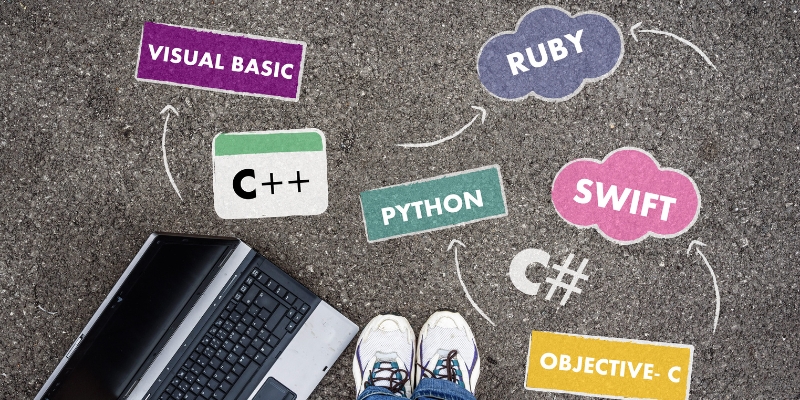You’re a seasonal developer with years of experience. With each passing day, you wake up with the thought of becoming the best — becoming the top 1% of software engineers. You’re not alone.
Before we start with our guide on how to become the top 1% of software engineer, you must know one thing — excellence and expertise takes time, and there are no shortcuts. However, by learning about your drawbacks or things to improve, you can push yourself to become the best software engineer out there.
However, when we say 1%, we mean to become better. It’s hard to quantify software engineers’ capacity and ranking when the technology, demands, and market are changing almost every day.
So, if you’re here to become a better software engineer, then keep reading.
Let’s get started.
What is a Software Engineer?
A software engineer is a professional who excels in the software engineering discipline. It requires the individual to develop, write, and test computer code to achieve the desired output for businesses and personal projects. In other terms, software engineering is understanding and designing, building, deploying, and testing complex systems.

At the core of development, Software engineering is solving problems and critical thinking. Solving problems can require software engineers to be in touch with end users, their pains, and their needs. So, an analytical person with soft skills has a higher chance of succeeding in the field of IT compared to a person who lacks soft skills.
Furthermore, a good software engineer must be a quick learner with a knack for understanding technologies and have the skill to implement the learning in the real world.
Software engineers excel at knowing programming languages and engineering principles. They are capable of working on complex software systems where they apply industry best practices to solve problems.
Responsibilities of a Software Engineer
To become the best, you first need to understand the responsibilities or day-to-day tasks that a software engineer does. These include:
✅ Understand the requirements of users. Note them down in proper shareable format for the team.
✅ Use programming languages to design, build, test, and deploy based on requirements.
✅ Test and debug the software before release.
✅ Take proper note of the user feedback and use the proper system to address them.
✅ Ensure that the written code is optimized for maintainability and performance.
✅ Follow a strict workflow to ensure proper documentation of the project. This can include creating flowcharts, technical specifications, or reports.
✅ Offer proper communication to stakeholders and customers about the progress, including updates and new features.
✅ Ensure open communication between team members.
These responsibilities broadly cover what a software engineer does in their day-to-day work life. However, these can be different depending on the job role. For example, if you’re a front-end developer, then you’ll focus more on the UX(User Experience) and UI (User Interface) side of things. You also need to have expertise in front-end technologies such as JavaScript, HTML, or CSS. Then, there are game developers, mobile developers, and full-stack developers with different skill sets and challenges.
Essential Skills For Software Engineers
#1. Programming Languages and Frameworks

Programming languages are the tools of the trade. If you’re going to be a highly proficient software engineer, you must be proficient in at least a couple of programming languages (depending on your job).
For example, if you’re working as a web developer, you must know front-end programming languages such as JavaScript. You must also be proficient in relevant frameworks such as React.
However, having knowledge of a variety of programming languages can give you an edge in your career.
#2. Soft Skills

A great software engineer must also be a great communicator. To become the top software engineer, you should also focus on your soft skills. These soft skills are different compared to technical skills, as it involves working with other people.
Hiring managers find software engineers to lack soft skills. This can lead to issues, especially when working on complex projects which require clear communication and execution. And, if you get it right, you can crack high-paying software engineer jobs.
These soft skills include:
🔷 Communication skills: Developing software requires communication with other team members, end users, and stakeholders. Without good communication skills, you will find yourself stuck in understanding the requirements carefully or engaging with the team in a meaningful way. Communication skills become vital for remote jobs as well.
🔷 Time management: The ability to manage time can lead to better job satisfaction as you can submit tasks on deadline.
🔷 Creativity: Creative thinking goes a long way when solving problems. It is a crucial soft skill for software engineers.
🔷 Problem-solving skills: If you want to become the best, you must have excellent problem-solving skills. It’ll improve your day-to-day task handling and improve your chances to grow your career.
Apart from these soft skills, you must also focus on teamwork, adaptability, and flexibility.
Steps To Becoming the Software Engineer You Always Wanted
Alright, you now know what a software engineer is and what he does. Now, how do you approach becoming one of the best software engineers out there? For that, you must follow the below-mentioned steps to improve as a software engineer. Let’s get started.
#1. Create a Plan For Your Career
Software engineering is a vast field. If you opt to become a software engineer, you need to make choices. And the earlier you make the choices, the better it is for you.
If you’re a new graduate, you’ll see that there are plenty of roles related to software engineer jobs. For example, you can become a front-end engineer, a back-end developer, a cloud computing expert, an operating system developer, a game developer, and so on. There are endless ways you can explore the field of software engineering.
That’s why it is vital to explore the ideas and career path yourself.
If you never studied computer science in college, then you’ll need to learn software engineering via alternative routes. One popular way is to go through boot camps to start their journey, but a more traditional degree will give you a better chance to get your dream job.
If you’re not sure what to choose, it’s best to start doing small, achievable projects.
#2. Seek Additional Training and Education to Meet the Education Requirement
The industry is highly competitive, and you’ll find the strict requirements for certain job roles. The first criterion is a bachelor’s degree in relevant trade. It can be computer science, software engineering, or information technology.
If you’re planning to opt for a software engineering career, a degree can help immensely. So, get one if you’re still a student. However, if you’re already a graduate, then there are other ways you can get into the software engineering market. First, you can complete your degree by correspondence. There are many online graduate degrees from accredited universities available through platforms such as Udacity or EDx.
You can also opt for boot camps, but I recommend against them, as they’ll only prepare you for coding jobs with hollow knowledge and understanding of the software engineering trade.
Apart from that, you must also look out for certifications that can help you grow your career. For example, if you’re looking to get a cloud-based engineer job, then look for relevant certifications to stay relevant in the highly competitive market.
Lastly, you also have self-learning platforms that can help you become a competent software engineer. However, teaching yourself to code is challenging and requires utmost dedication. I suggest checking out freeCodeCamp.
#3. Learn Soft Skills
Soft skills are vital for your success as a software engineer. Soft skills include communication skills, critical thinking, time management, teamwork, adaptability, flexibility, and problem-solving skills.
Just like any skills, soft skills take time to develop and hone. So, keep practicing, and you’ll be bound to improve.
#4. Get a Mentor to Guide You
Mentorship can help you improve your chances of success. They can help guide you on what to learn next or what jobs to apply for. Their career guidance can save you from a lot of frustration and struggle. Also, mentors can guide you through projects and give you feedback on your work.
Overall, mentors are critical for most software engineers who are keen to grow.
#5. Create a Portfolio
A portfolio can give you a higher chance of landing your dream job. It showcases your actual work. Hiring managers will always prefer a candidate with a portfolio than someone with a lot of certifications — as it actually enables them to learn about the candidate’s skills. This also acts as evidence of your skills and what you can achieve, given the chance.
#6. Networking
As a software engineer, you should network quite often. This will help you in your career development and give you job opportunities that you might not have even thought of before. It can also lead to skill improvement as you can connect with mentors who can help you in your professional journey. Lastly, you can learn about industry trends more frequently.
#7. Master Software Engineering Tools
As a software engineer, you must know how to use tools in your day-to-day work. These tools include Git, GitHub, command line, and Integrated Development Environment. By knowing these deeply, you’re giving yourself an immense productivity boost when working on complex projects.
FAQs
Like any field, software engineering is an ongoing process. One day, you may feel the best out there, and some days, you will struggle. As 1% is just an arbitrary number, your main goal should be to improve constantly, improving your skill sets to solve problems diligently with care for business and end users.
Making 1% Improvements Daily
The path of excellence starts every day you wake up. Each day is a chance to improve yourself. The 1% rule means that you have a chance to give yourself 365% in a year. The effect of compounding works great over the long term. So, if you’re a software engineer who wants to become the best, then you’ll need to learn how to skill yourself up in small margins. It includes challenging yourself with the idea of growing yourself.
However, it might not be possible to grow daily, but even if you succeed half the time, you give yourself the chance to grow. For learning new skills, you can schedule a time, either daily or on weekends.

